The quest for vegan leather is a never-ending one, as more and more researchers are focusing on finding alternative materials to real leather and create a cruelty-free world.
Two Mexican from Zacatecas seem to have found a great substitute in the form of Desserto, which is vegan leather made from cactuses.
There have been some previous attempts of creating cruelty-free leather from plants or from pineapple, but two Mexican entrepreneurs have thought about investigating something closer to home.
Adrian Lopez Velarde and Marte Cezarez are the founders of Adriano Di Marti, and they are selling Desserto for anyone interested in making vegan-friendly products. Desserto is made after nopal, which is a type of cactus, is processed into a material suitable for the making of all sorts of clothes and accessories.
The material created by the two entrepreneurs should last for 10 years and is produced without the use of any toxic chemicals. This makes Desserto a truly sustainable brand.
WHY CACTUS?
- Cactus is a natural carbon sink (has a great carbon-sequestring capacity).
- It takes approximately 3 leaves of cactus to create one linear meter of Desserto.
- We only cut the mature leaves of the plant without damaging the plant itself, enabling repeat harvest every 6-8 months from the same plants.
- Our USDA certified cactus is grown in an organic farming system in the fertile and mineral-rich region of Zacatecas, Mexico.
- We do not compete with food, we are giving cactus its highest value!
Desserto is a highly sustainable plant based vegan leather made from cactus, often distinguished by its great softness at touch while offering a great performance for a wide variety of applications and complying with the most rigorous quality and environmental standards. The aim is to offer cruelty free, sustainable alternatives, without any toxic chemicals, phthalates and PVC. The result, Desserto , the cactus vegan leather, is partially biodegradable and has the technical specifications required by the fashion, leather goods, luxury packaging and furniture industries.
The top 10 sustainable facts of Desserto organic cactus feed-stock:
1. Biodiversity amelioration in the region.
2. Reverts Land Use Change (LUC).
3. Enrichment of soil micro-flora and micro-fauna through native and typical organic cactus afforestation.
4. Huge savings in water as no irrigation is applied.
5. Environmental preservation as no chemicals are used like herbicides or pesticides.
6. Cactus is left unharmed to enable repeated harvesting from the same plant.
7. Energy savings by drying the feed-stock in a solarium.
8. No cross-industry conflict as the byproduct is directed to the food industry in an increased value form which is more attractive, and stimulates the agricultural sector to plant more cactus.
9. Full vision and traceability of the farm to ensure sustainable social practices.
10. Technological enhancements at the fields.
Learn more about Desserto…

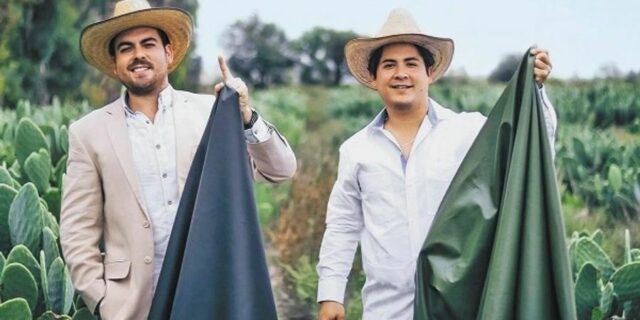
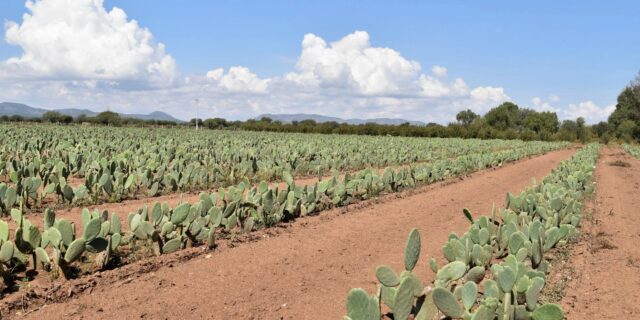
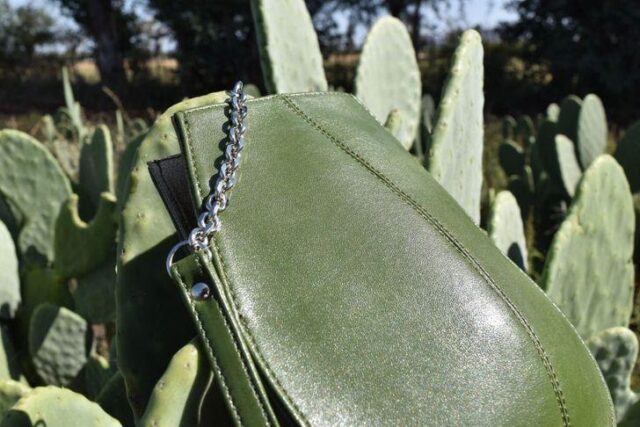









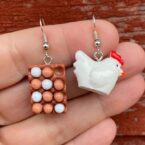
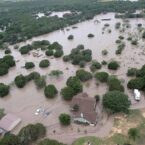



Is anyone using this to make sturdy puncture resistant vegan work gloves? Or just handbags?
This is very exciting. Cactus leather without hurting cows or the planet is the future. Well done guys.
Check out all the plastics in it, not hurting the planet, lol
cactus leather’s main ingredient is plastic polyurethane (65%). The cactus only makes up 30% of the material by weight.
Great idea. Wondering if it can be dyed? Or only comes in green?
Hi I am in South Africa and have the cactus plants I want to know how to make the leather out of cactus plants can you please help me
I love this vidéo , because i see vegetables are good for our health and also for our fashion style.Thank u
So happy! What a great new option!
Fantastic. International patents are needed.
Is it as strong as leather? How would it wear compared to cow leather in a workboot application?
Is it waterproof? Where can I buy some? Is there a minimal size that I need to buy? Thank you Lloyd
Want one where can I get one ?
Brilliant. Absolutely brilliant
Feels good. Still, humanity needs to go into full transition. If entrepreneurs start planting fields with cacti and cut forests for more monoculture and even more loss of biodiversity, eradication of even more plant and animal species (including humans). Be aware of the consequences that could be for the next generations of life on earth in EVERY step you take in a (conversion) plan!